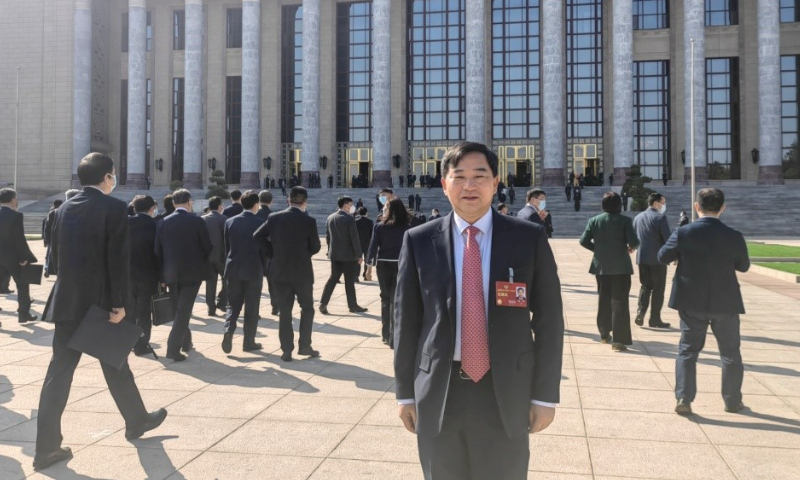
Qian Gang, Chairman of CITIC Pacific Special Steel Photo: Global Times
China needs to further improve the apprenticeship system with Chinese characteristics, including top-level design, teaching standards, and supporting policies, in order to support the high-quality development of the manufacturing industry, said Qian Gang, chairman of CITIC Pacific Special Steel and a member of the National Committee of the Chinese People's Political Consultative Conference (CPPCC), in an interview with the Global Times on Wednesday.
At the two sessions, Qian has put forward proposals on further promoting apprenticeship training with Chinese characteristics.
Deemed as a model with Chinese characteristics, the apprenticeship program is aimed at training experienced workers and senior technicians to provide support for the country's industrial upgrading.
During the process, vocational schools and businesses serve as training grounds to help students acquire skills both in school and workplace settings to obtain the experience they need.
According to Qian, China began the exploration of apprenticeships with Chinese characteristics in 2014 and has provided important talent support for industrial transformation and upgrading.
"The high-quality development of manufacturing industry needs talent with scientific and technological innovation ability as well as craftsmen working in the frontline," Qian said.
Citing the example of his company, Qian said that steel production is a long and multi-process business, and high-quality talent is needed to guarantee high quality products.
In the preliminary research, Qian found out that in the process of exploring apprenticeship with Chinese characteristics, local governments have encountered some common problems, such as different policies among ministries and departments, unbalanced policy support, and imperfect teaching standards.
Qian suggested that efforts should be made to further strengthen the linkage between schools and enterprises, and make full use of the teaching resources of schools and senior technical resources of factories, so that students can better meet the needs of enterprises after graduation.
Qian also suggested refining the support and incentive policies of the apprenticeship system and called for enterprises to offer reasonable compensation to frontline skilled workers and provide them with career advancement channels.
Global Times




